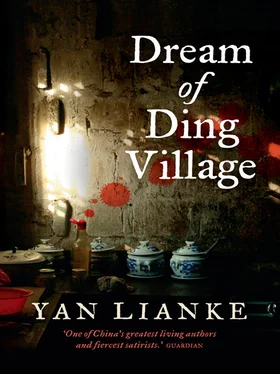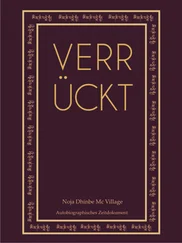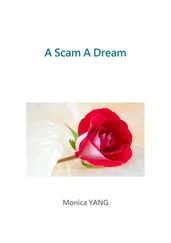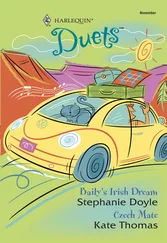One day, a villager walked up to Li Sanren and spat in his face. ‘Li Sanren, you’ve got some nerve, calling yourself our leader,’ the man complained. ‘In all the years you’ve been village mayor and party secretary, my family hasn’t had one square meal. We can’t even afford to have dumplings at New Year!’
In the end, Li Sanren was removed from office. As soon as the blood-selling began, he was sacked. He became silent and taciturn, hardly speaking to the other villagers. His face turned ashen and grey, as if someone had slapped him with the sole of a dirty shoe.
The higher-ups, taking notice of my dad’s success in the blood trade, asked him to become the mayor of Ding Village. They hoped he’d help the village set up a few more blood-collection stations and foster a few more successful blood merchants, instead of spending his time collecting blood for his own business. Realizing that more bloodheads meant more competition for him, and less money for his family, Dad turned down the job, leaving Ding Village without a mayor. The post would remain empty for many years. Even today, the village doesn’t have a mayor.
When the higher-ups called on the people of Ding Village to sell more blood, Li Sanren stubbornly refused to participate. He wanted no part of it. ‘I didn’t spend all those years as mayor,’ he argued, ‘to see it come to this. . folks out there selling their own blood.’
But Li Sanren’s wife, after visiting the fancy new tile-roofed houses of her friends and neighbours who’d sold their blood, took to cursing her husband in public. ‘Li Sanren, you call yourself a man? You’re not even man enough to sell blood. With you as mayor all those years, it’s no wonder that the women in this village can’t even afford sanitary pads! It’s all your fault. You’re nothing better than a eunuch, a coward who’s too scared to sell a pint of blood, much less half a pint, or a drop, even! What kind of man gets scared by a few drops of his own blood?’
That day, Li Sanren was squatting outside the door of his house, eating his dinner. He allowed his wife to curse him, suffering her insults and abuse without comment.
When she had finished her tirade, he threw his empty bowl on the ground and walked off without a word. She supposed he had got sick of listening to her and had just gone out for a walk. But later, as she was washing up the dishes and getting ready to feed the pigs, Li Sanren walked into the kitchen clutching a 100-yuan bill. One of his sleeves was rolled up to the elbow, and he was flexing and pinching the exposed arm. His face was unusually pale, covered with nervous perspiration. He crossed the kitchen, placed the bill on a corner of the stove and turned to his wife.
‘There,’ he said tearfully. ‘You see? I sold my blood.’
She paused from her washing up and stared at her husband’s pale face.
‘Well, that’s more like it,’ she said, laughing. ‘Now you’re a real man.’
She looked at him. ‘Do you want some sugar-water?’
‘No,’ he answered, his eyes filled with tears. ‘I spent half my life working for the revolution, and now I’ve been reduced to selling my blood.’
Soon Li Sanren was selling his blood regularly. At first it was just once a month, then every twenty days, then every ten. Towards the end, if he had gone too long without selling blood, his veins would begin to feel swollen. It was as if they were bursting with blood. If the blood wasn’t siphoned out it would begin to seep from his pores.
As the number of villagers selling their blood increased, so did the number of bloodheads. There was a lot of competition. Bloodheads began going door to door with their equipment, collecting plasma as if it were scrap metal or worn-out shoes. You didn’t even have to leave your house. Every day you would hear them calling — ‘Blood collector! Anyone selling blood?’ — like pedlars hawking their wares.
Blood merchants even went out into the fields to collect blood from farmers working their land.
‘Hey, there!’ the bloodhead would shout. ‘Got any blood to sell?’
‘Go away,’ the farmer would reply, ‘I just sold some.’
But the bloodhead wouldn’t go away.
‘That’s some fine-looking wheat you’ve got there. The sprouts are nice and dark.’
The farmer would beam with pride. ‘Can you guess how much chemical fertilizer I used?’
The bloodhead would then kneel down for a closer look, as if admiring the newly sprouted wheat. ‘I don’t know how much you used, but I know you probably paid for it by selling blood. A pint of blood will buy you two bags of chemical fertilizer. On this little plot, one bag should be enough for a bumper harvest.’
‘Of course, farming’s the main thing,’ the bloodhead would say casually. ‘Some people quit farming when they start selling blood, or even abandon their land. Of course, blood always replenishes itself, but a person can only live so long. Even if you live to be a hundred, you can’t keep selling blood past a certain age. But a plot of land like this. . you can farm it for a hundred, even a thousand years, and it’ll keep producing great harvests. Blood-selling is different. You can’t do that for hundreds or thousands of years. Am I right?’
Now they were speaking the same language. Setting his work aside, the farmer would walk to the edge of his field to talk to this friendly stranger, a bloodhead from another village. After chatting for a while, the farmer would impulsively roll up his sleeve and hold out his arm. ‘Tell you what,’ he’d say, ‘seeing as how we’ve hit it off so well, what do you say I sell you a pint?’
After the farmer had sold another pint of his blood, and the merchant had paid for it, the two would part like old friends.
Having established this comfortable rapport, the blood merchant would visit often. Every few weeks, he’d arrive at the field with his syringes and tubes, to chat for a while and extract another pint of blood from the farmer’s veins. That was how it worked.
One day, Li Sanren was out in his field, using a pickaxe to turn the soil in the corners where his plow couldn’t reach. The wheat harvest was over, and it was time to plant the autumn corn. Autumn planting was different from summer planting: it was more of a race against time. If a farmer could manage to get his seed corn into the ground just one day early, it might ripen several days ahead of schedule, allowing him to harvest it before the winds and rain set in. Li Sanren knew how important it was to plant his seed corn within the next couple of days.
Turning the soil at the edges of his plot was back-breaking work that had to be done manually. Now that Li Sanren was selling blood two or three times a month, his face had turned sallow, as if his skin were coated with a thin layer of wax. When he’d been the mayor, he could swing a pickaxe as easily as if it were the handle of a hoe, but now it felt like trying to heft a boulder.
Although it was autumn, the summer heat had not yet passed. If you looked to the horizon, the scorching sun made it look like the whole plain was ablaze. As Li Sanren swung his pickaxe, breaking up the clods of dirt, sweat poured down his face like rainwater. He was barefoot, stripped to the waist, his back glistening with moisture as if he’d just taken a swim. His sweat made the red sesame-sized needle marks on his bare arms itch and swell to the size of mosquito bites. He was nearing the end of his strength. The previous year, he’d turned the soil on the borders of his plot in only half a day. But this year, after six months of selling blood, he’d been working for two days straight and the job was only half-finished.
The sun was high in the sky. Smoke rose from the chimneys of Ding Village and wafted through the air like plumes of white silk. By now, my grandmother had been dead nearly three months. She had trodden on a basin that my dad left lying on the ground and had ended up covered in Type-A blood. When she saw all the blood, she collapsed from fright. From then on, she suffered from panic attacks and an irregular heartbeat. Eventually, the strain on her heart proved to be too much: it stopped beating entirely, and she died. After her death, my dad and my uncle swore tearfully that they’d stop buying and collecting blood, that they’d give up the trade altogether. But now, only three months later, they were at it again, making the rounds with their three-wheeled cart.
Читать дальше












